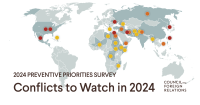Political campaign funding is the lifeblood of democratic processes, yet it's a domain rife with ethical considerations and contentious issues. The intricate relationship between money and politics raises questions about transparency, fairness, and the potential influence of special interests. In this blog, we delve into the ethical complexities surrounding political campaign funding, exploring its implications, challenges, and potential reforms.

The Influence of Money in Politics
1. Financial Influence on Elections
Money plays a pivotal role in elections, affecting campaign strategies, outreach efforts, and the overall viability of candidates. The ability to raise funds often determines the visibility and success of political campaigns.
2. Special Interest Influence
Political donations from corporations, interest groups, and wealthy individuals raise concerns about undue influence on policy decisions, potentially compromising the representation of the broader public interest.
Ethical Challenges in Campaign Funding
1. Transparency and Accountability
The lack of transparency in campaign financing obscures the sources of funding, making it challenging to track potential conflicts of interest or influence on elected officials.
2. Unequal Access to Political Influence
The disproportionate financial resources available to certain candidates or parties create an uneven playing field, limiting opportunities for grassroots or less financially endowed candidates to compete effectively.

Debates on Reform and Regulation
1. Campaign Finance Laws
Reforms aimed at regulating campaign finance seek to enhance transparency, limit the influence of big donors, and ensure fair competition. However, the effectiveness and enforcement of such laws vary across different jurisdictions.
2. Public Financing and Contribution Limits
Introducing public financing systems or imposing contribution limits aims to reduce the influence of wealthy donors and special interests, promoting a more equitable electoral landscape.
Balancing Freedom of Speech and Fairness
1. First Amendment Considerations
Debates on campaign finance often intersect with freedom of speech concerns. Some argue that limiting campaign contributions infringes upon free speech rights, while others advocate for regulations to prevent the distortion of democratic processes.
2. Ensuring Fairness and Representation
Striking a balance between protecting free speech and ensuring fair representation remains a fundamental challenge in crafting ethical campaign finance regulations.
Conclusion
The ethics of political campaign funding remain a complex and evolving issue at the core of democratic governance. Striking the right balance between ensuring transparency, fairness, and the protection of democratic principles is essential. Reforms and regulations should aim to mitigate the influence of money on politics while upholding the fundamental right to participate in the democratic process.







